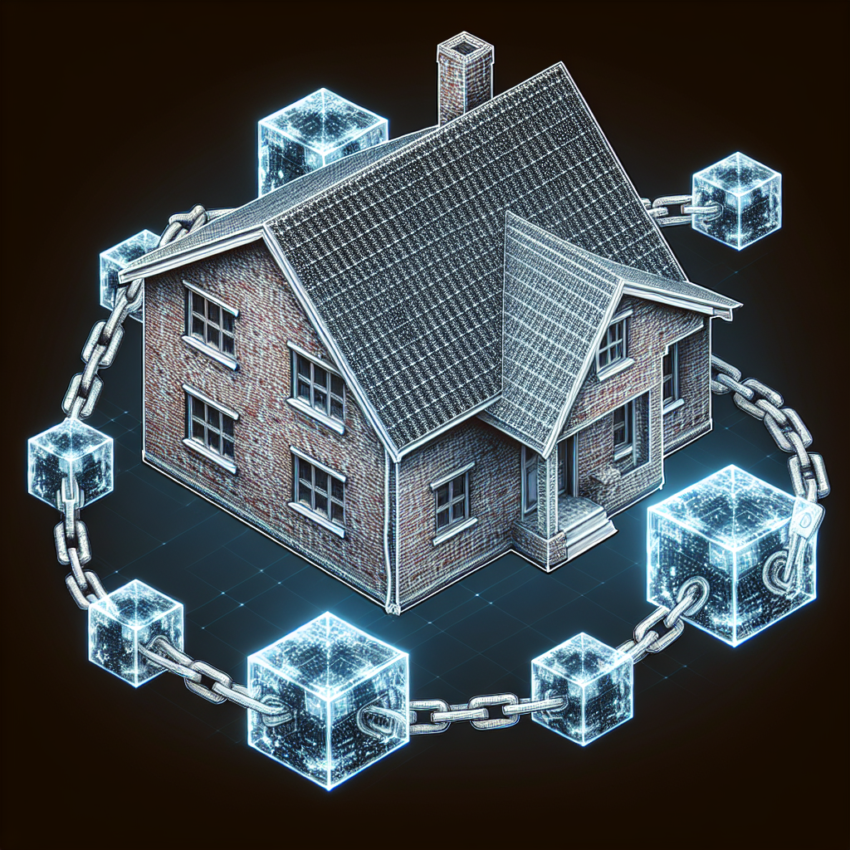Introduction
Blockchain technology is changing various industries, and real estate is no exception. With its potential to ensure transparency, security, and efficiency in property transactions, blockchain is poised to reshape how we buy and sell real estate. In this article, we delve into the transformative role of blockchain in real estate and how it guarantees transparency in property transactions.
Understanding Blockchain Technology
To appreciate how blockchain can enhance real estate transactions, it is essential to understand what blockchain is. At its core, blockchain is a decentralized ledger technology (DLT) that records data across multiple computers in such a way that the registered data cannot be altered retroactively. This technology is known for its:
- Decentralization: Unlike traditional databases controlled by a single entity, blockchain operates on a network of computers, making it less susceptible to manipulation.
- Immutability: Once data is added to a blockchain, it cannot be changed or deleted, ensuring data integrity.
- Transparency: All participants in the network have access to the same data, promoting accountability.
The Challenges in Traditional Real Estate Transactions
Before diving into the advantages of using blockchain, it is crucial to highlight the challenges faced in traditional real estate transactions. These challenges include:
- Fraud Potential: Property fraud can occur when information about ownership or property details is altered.
- Lack of Transparency: Potential buyers often face challenges in obtaining accurate property records.
- Time-Consuming Processes: Traditional property transactions may involve layers of paperwork and multiple parties, causing delays.
- High Costs: Legal fees and intermediaries can create additional costs for buyers and sellers.
How Blockchain Ensures Transparency
1. Immutable Property Records
Blockchain’s immutable nature means that once property records are created and stored on the blockchain, they cannot be altered or deleted. This creates a reliable source of truth, ensuring that property ownership and transaction history are accessible and traceable.
2. Secure Transactions
By utilizing smart contracts, blockchain automates and secures transactions. For instance, once the agreed-upon conditions of a property sale are met, the blockchain executes the transaction automatically, minimizing the risk of fraud.
3. Enhanced Due Diligence
Blockchain provides a transparent view of a property’s history, including previous owners, sales prices, and any liens. This level of visibility enables buyers and investors to conduct thorough due diligence before making significant investments.
4. Accessible Data
Blockchain allows easy access to property data for all stakeholders involved in a transaction, including buyers, sellers, agents, and lawyers. This democratization of information ensures everyone is on the same page, further enhancing trust.
Real-World Applications of Blockchain in Real Estate
1. Title Management
Traditionally, keeping track of property titles has been prone to errors and fraud. By recording property titles on blockchain, stakeholders can view title histories with complete accuracy, reducing disputes and streamlining the closing process.
2. Fractional Ownership
Blockchain facilitates fractional ownership of real estate, allowing multiple investors to buy shares in properties. This innovation makes real estate investment accessible to a broader audience and opens up new avenues for funding.
3. Tokenization of Assets
Tokenization refers to converting assets into digital tokens on a blockchain. Real estate tokenization enables the creation of digital representations of physical properties. These tokens can be easily bought, sold, or traded, allowing for increased liquidity in real estate markets.
4. Streamlined Property Management
Blockchain can also enhance property management processes, from leasing agreements to maintenance records. By utilizing smart contracts, landlords and tenants can automate tasks, ensuring efficient and transparent operations.
Challenges to Implementing Blockchain in Real Estate
Despite its many advantages, the adoption of blockchain in real estate is not without challenges. These include:
- Regulatory Hurdles: Existing laws may not support blockchain applications in real estate, necessitating regulatory adaptations.
- Technological Complexity: The integration of blockchain into existing systems requires significant technical expertise and can be a barrier for some organizations.
- Market Readiness: The real estate market must embrace the technology for it to gain widespread acceptance.
The Future of Blockchain in Real Estate
As technology continues to evolve, the future of blockchain in real estate looks promising. More companies are beginning to experiment with blockchain solutions, and regulatory environments are gradually adapting to accommodate this innovative technology. As transparency and efficiency in property transactions become increasingly vital in the digital age, blockchain’s role will likely grow.
Conclusion
Blockchain technology holds immense potential to revolutionize the real estate industry by ensuring transparency in property transactions. With its ability to create immutable records, secure transactions, and enable accessible data, blockchain presents a formidable solution to the traditional challenges in real estate. As obstacles to its adoption are overcome, the integration of blockchain into standard real estate practices may become the norm, paving the way for a more transparent and efficient market.

